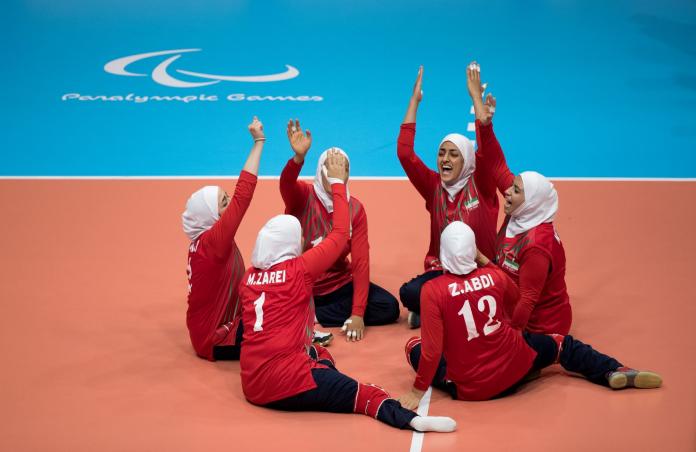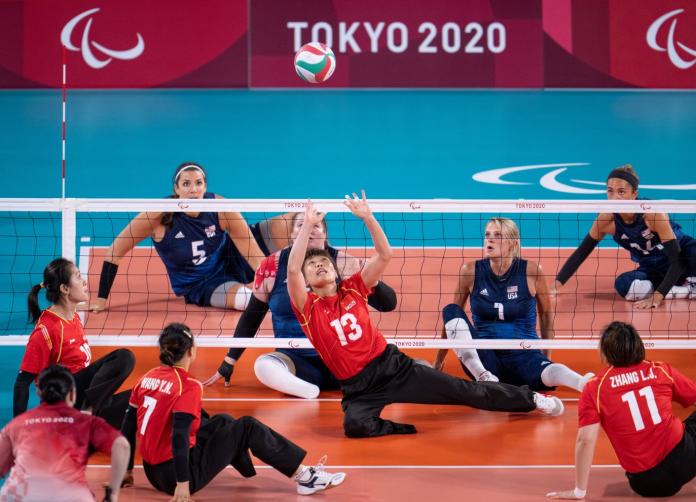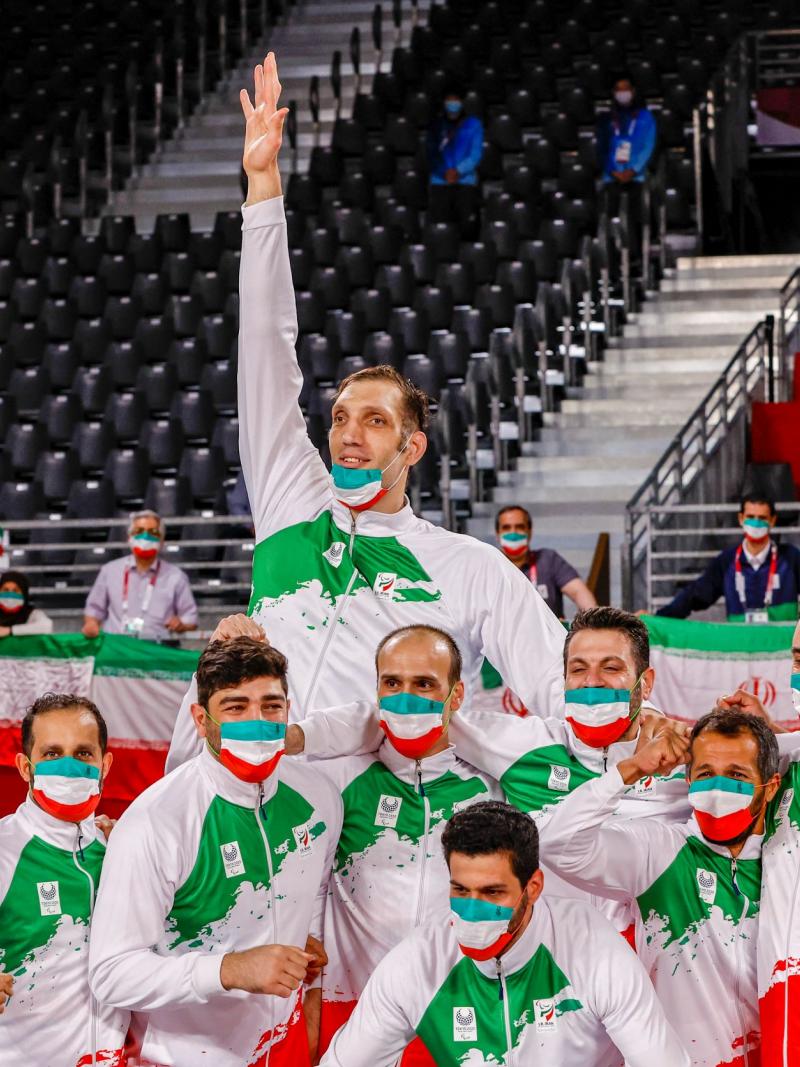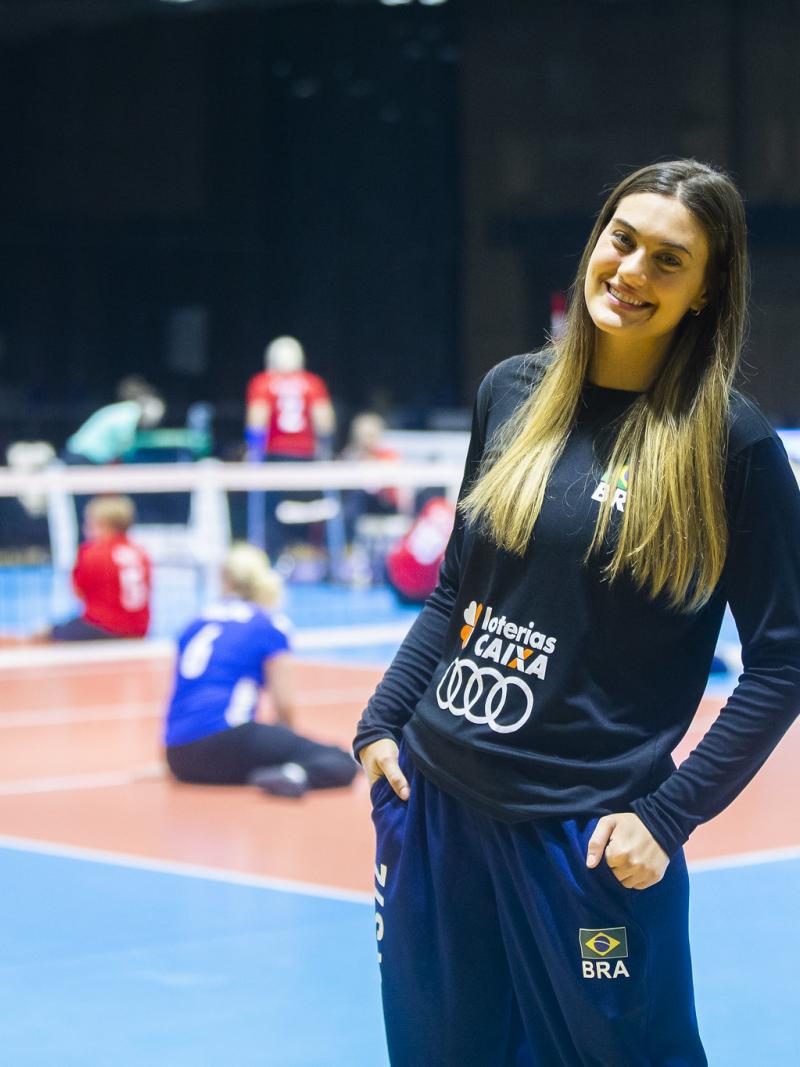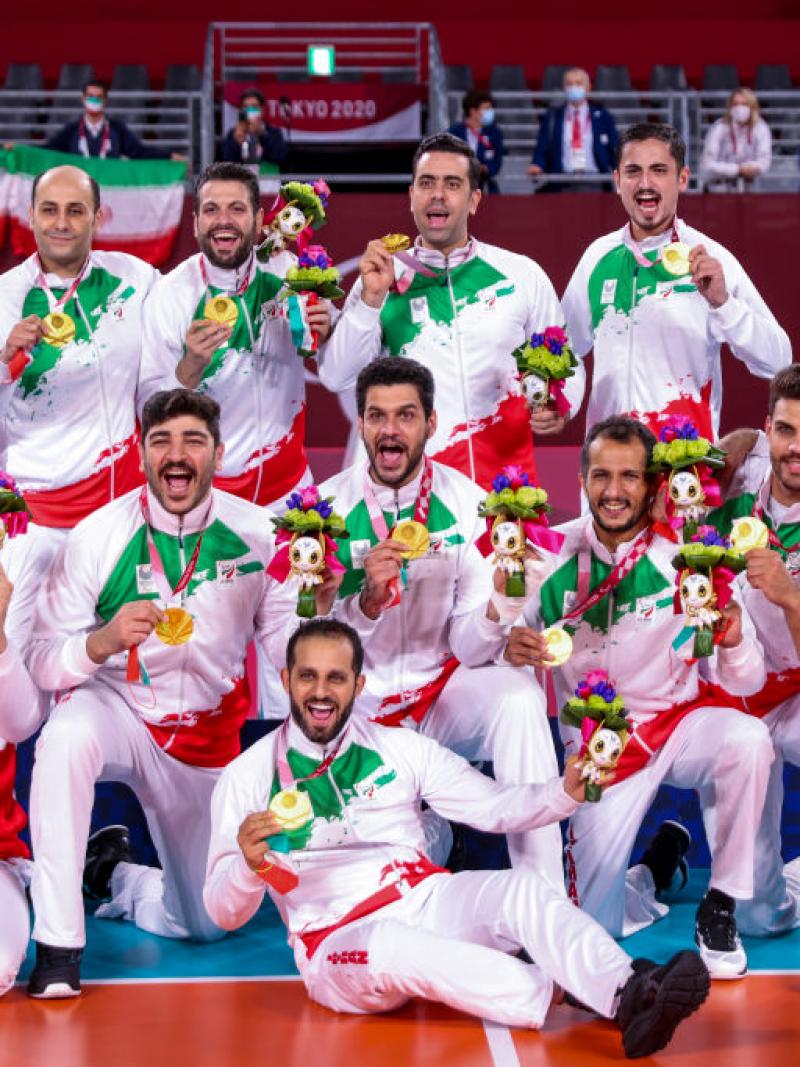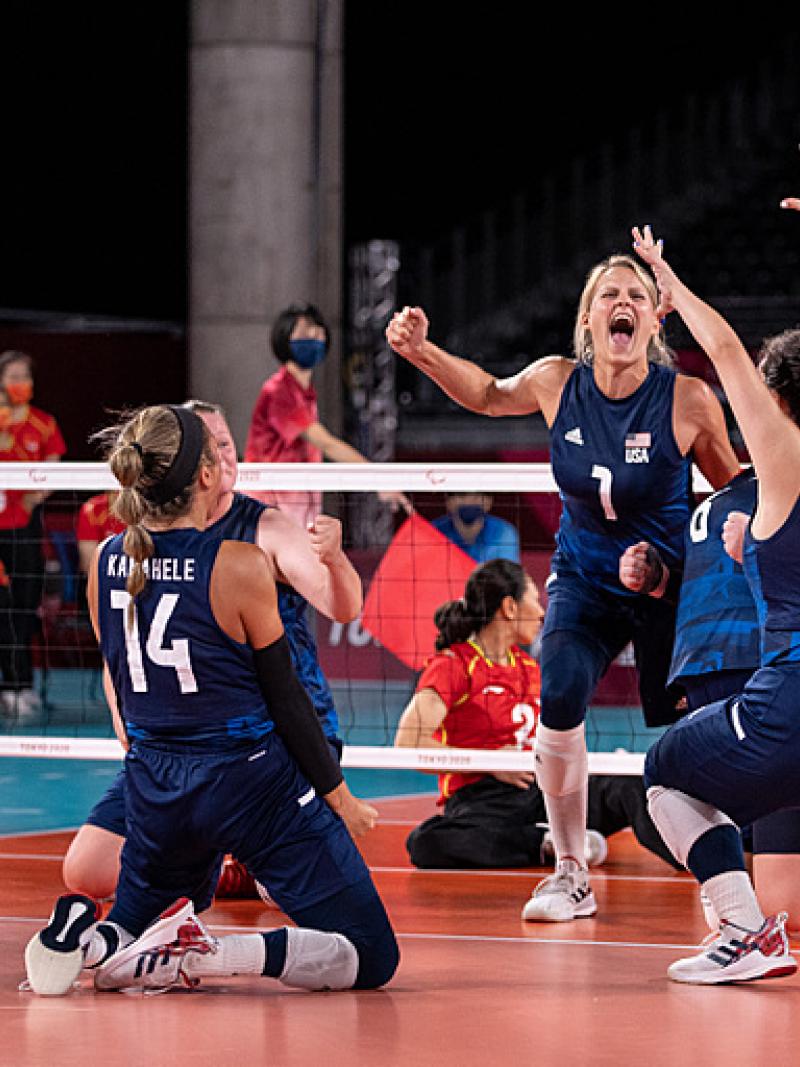Sitting volleyball athletes embrace “family” on court
Sitting volleyball is one of the 22 sports on the Paris 2024 Paralympic sports prorgramme. There will be eight teams each in the men's and women's tournaments 01 Dec 2023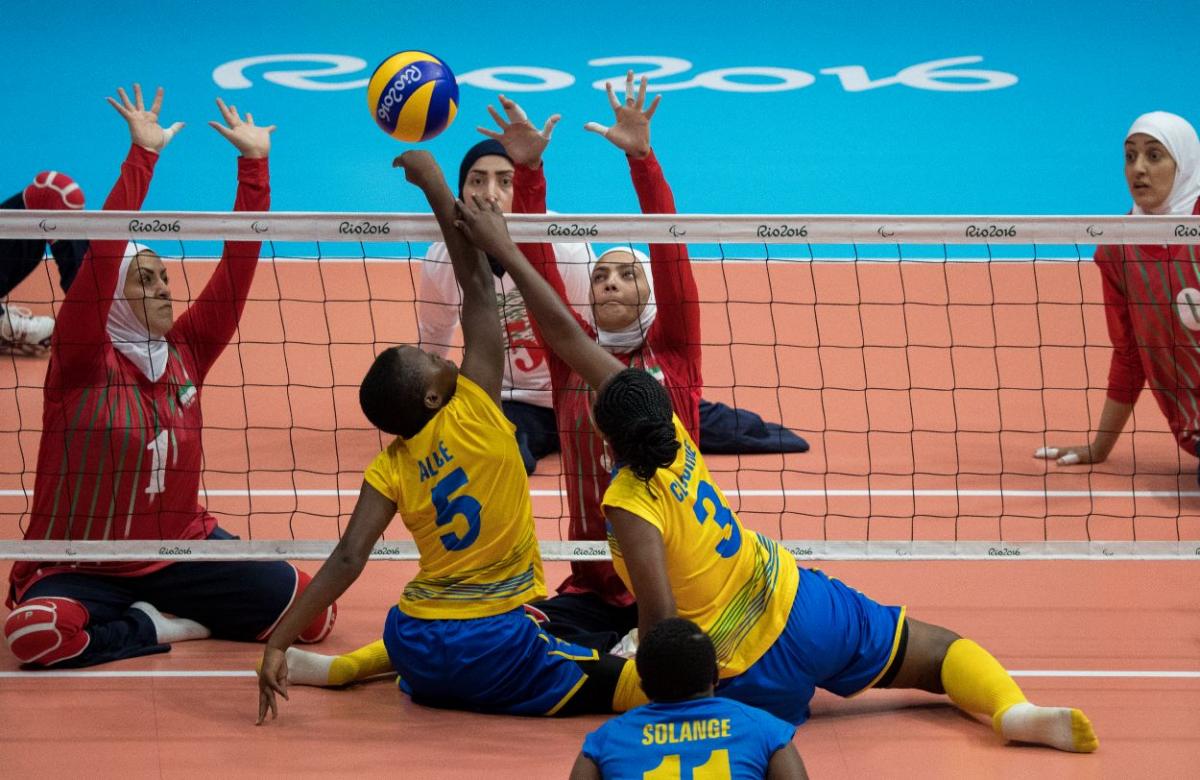
To Masoumeh Zarei Barouti, a sitting volleyball athlete from the Islamic Republic of Iran, taking up the sport was a life-changing experience.
“Before I became an athlete, I isolated myself and I was at home all the time because of my disability,” Zarei Barouti said. “But right after I became an athlete, my whole life changed.”
Competing in sitting volleyball means that she is no longer staying at home. She has found another family outside of her house, those with whom she trains and travels around the world, competing in tournaments including the Rio 2016 Paralympic Games and most recently, the Hangzhou 2022 Asian Para Games.
We are family
In Hangzhou, the Iranian team captured the silver medal in the women’s event, which was won by hosts China. On the final competition day, Zarei Barouti and her team even held a small birthday party for one of their players, and they took selfies with the Games mascot Feifei.
“Our players have really nice teamwork and sympathy toward each other,” said head coach Leyla Beryanyan Esfanhani, who has led the team for about a year. “The players are like a family and they are like sisters. As the head coach, I consider myself their mother and I love it.
“It’s important for me to continue supporting them and be happy together.”
The women’s sitting volleyball event was introduced at the Paralympic Games in 2004. The Iranian women’s team participated at the Rio 2016 Games, while the men’s team, a huge powerhouse, has claimed seven gold medals since the men’s tournament was first included in the 1980 Paralympics.
“It’s really important for me and the players to share the same goal, which is to participate in the Paralympics in Paris,” Coach Esfanhani said.
As Zarei Barouti, the team captain, sees how far the sport has taken her, she also recognises the impact her playing has had outside of the court.
“People’s behavior toward me has changed since I became an athlete and people have learned that not everyone with a disability is weak.”
Becoming champions
China has led the field since the women’s competition was introduced at the Paralympics. The Chinese national women’s team, which was established in 2000, has captured a medal at every single Games, taking three gold and two silver medals.
Xu Yixiao, the team captain, shared how special it is to compete at the Paralympic Games.
“When I started out as a player, I was already 30 years old and of course I faced a lot of difficulties including injuries and increase in my age,” she said. “I’ve been to two Paralympic Games, which were Rio 2016 and Tokyo 2020. During these Games, I felt joy and I felt even more affirmation for the sport.
“I will continue to pursue my dream with courage and determination. I will continue to fight to become a champion.”
Head Coach Xu Huimin believes that it is the “team’s spirit” that has lifted the players to become one of the best teams in the world.
“We have been champions at the Paralympics three times. In Tokyo, we were in second place but our goal is always to be the champion and that’s why we train so hard. We are the national volleyball team,” she said.
A sport for all
Sitting volleyball has many similarities to its stand-up version, but with a few modifications. Whilst teams in the stand-up version are separated by a raised net, sitting volleyball is played with a lower net.
The main difference between the two versions is that sitting volleyball, as its name implies, is played from seated positions. At all times, the athlete’s pelvis must be in contact with the ground, and service blocks and attacks are allowed.
“In sitting volleyball, able-bodied players and players with disabilities can play together for fun. I think this sport has no boundaries between people with and without disabilities. I think that both adults and children can have fun in the sport,” said Michiyo Nishiie, the captain of the Japanese women’s team.
“Our teamwork is really good. We try to improve each other by working together,” she added. “There is a huge age difference between our players. We are like a family when we train and we ask each other how we can become better players.
“I hope people who are interested in sitting volleyball start by watching the sport and give it a try. Don’t think that it might be difficult. You can always have fun so you should give it a try.”
Looking back at how far the sport has taken her, Zarei Barouti, the Iranian captain, hopes that more people with disabilities take up Para sports.
“People should follow their own goals themselves and choose one of the sports for people with disabilities. They need to follow it and I assure them that in the end, success will await.”

 Facebook
Facebook
 Instagram
Instagram
 Twitter
Twitter
 Youtube
Youtube
 TikTok
TikTok
 Newsletter Subscribe
Newsletter Subscribe

